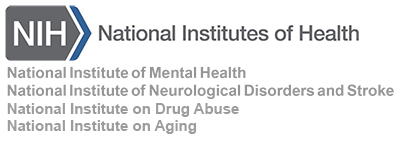Improvements in brain and behavior following eradication of hepatitis C.
| Title | Improvements in brain and behavior following eradication of hepatitis C. |
| Publication Type | Journal Article |
| Year of Publication | 2017 |
| Authors | Kuhn, T, Sayegh, P, Jones, JD, Smith, J, Sarma, MK, Ragin, A, Singer, EJ, M Thomas, A, Thames, AD, Castellon, SA, Hinkin, CH |
| Journal | J Neurovirol |
| Volume | 23 |
| Issue | 4 |
| Pagination | 593-602 |
| Date Published | 2017 08 |
| ISSN | 1538-2443 |
| Keywords | Adult, Anisotropy, Brain, Case-Control Studies, Cognition, Diffusion Tensor Imaging, Executive function, Female, Hepacivirus, Hepatitis C, Chronic, Humans, Male, Memory, Middle Aged, Neuropsychological Tests, White Matter |
| Abstract | Despite recent advances in treatment, hepatitis C remains a significant public health problem. The hepatitis C virus (HCV) is known to infiltrate the brain, yet findings from studies on associated neurocognitive and neuropathological changes are mixed. Furthermore, it remains unclear if HCV eradication improves HCV-associated neurological compromise. This study examined the longitudinal relationship between neurocognitive and neurophysiologic markers among healthy HCV- controls and HCV+ adults following successful HCV eradication. We hypothesized that neurocognitive outcomes following treatment would be related to both improved cognition and white matter integrity. Participants included 57 HCV+ participants who successfully cleared the virus at the end of treatment (sustained virologic responders [SVRs]) and 22 HCV- controls. Participants underwent neuropsychological testing and, for a nested subset of participants, neuroimaging (diffusion tensor imaging) at baseline and 12 weeks following completion of HCV therapy. Contrary to expectation, group-level longitudinal analyses did not reveal significant improvement in neurocognitive performance in the SVRs compared to the control group. However, a subgroup of SVRs demonstrated a significant improvement in cognition relative to controls, which was related to improved white matter integrity. Indeed, neuroimaging data revealed beneficial effects associated with clearing the virus, particularly in the posterior corona radiata and the superior longitudinal fasciculus. Findings suggest that a subgroup of HCV+ patients experienced improvements in cognitive functioning following eradication of HCV, which appears related to positive changes in white matter integrity. Future research should examine whether any additional improvements in neurocognition and white matter integrity among SVRs occur with longer follow-up periods. |
| DOI | 10.1007/s13365-017-0533-0 |
| Alternate Journal | J Neurovirol |
| PubMed ID | 28560632 |
| PubMed Central ID | PMC5623101 |
| Grant List | R01 MH083553 / MH / NIMH NIH HHS / United States T32 MH019535 / MH / NIMH NIH HHS / United States U24 MH100929 / MH / NIMH NIH HHS / United States |

